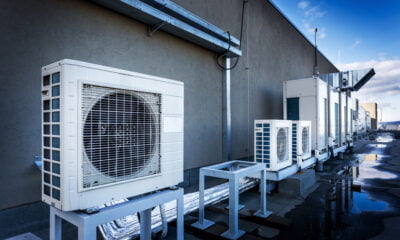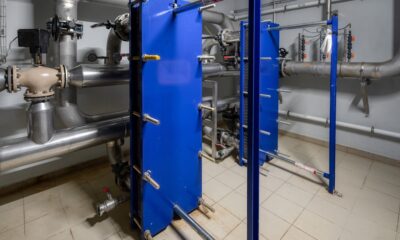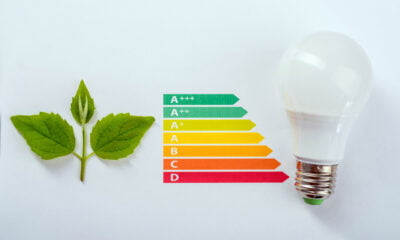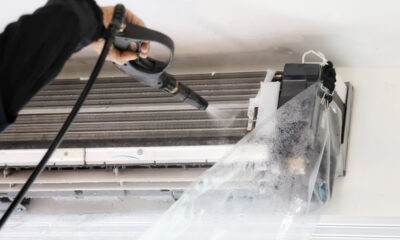

Energy
How to Improve Your Home’s Energy Efficiency, Reduce Your Carbon Footprint and Save Money
It’s now accepted that we all need to do “our bit” for the environment. First thoughts tend to limit the idea of this to recycling, something we do without any recognisable personal benefit aside from mild moral gratification.
But by doing more there are financial advantages to be gained, and it’s when we go further in the process of environmental responsibility, that step-by-step, not only are we reducing our carbon footprint for the sake of all mankind, we are also saving real money for the sake of our bank balances. Focusing specifically on the home, here are some ideas of things we can do:
The Basics…
Be Energy Conscious
There’s no real difficulty in turning out lights, unplugging electronic device chargers, switching off televisions and DVD players at the wall instead of leaving them on standby, and so-on. But doing all of these makes a difference to both the planet and your pocket.
Energy Efficient Light Bulbs
Replace those traditional light bulbs with compact fluorescents and, going further, halogen spotlights with LEDs, saving you £3 per year (or £50 over the lifetime of the bulb) on the former, and £30 per year on the latter. Well worth the extra initial cost of each one.
Insulation
There are numerous ways you can do this including insulating floors and hot water tanks, alongside cheap and effective methods such as draught-proofing and installing reflective radiator panels. However, the real savings are to be made by either cavity or solid wall insulation and loft insulation.
According to the Energy Saving trust, insulating your walls can save an average three-bedroom house as much as £160 on its bills. Loft insulation can save as much £140 a year.
Insulation costs up to £700. However, as part of the Governments initiative to improve energy efficiency in the UK, 90% of homes will now get it free.
Next Steps…
Upgrade your appliances
Electrical products such as fridges, cookers, and tumble dryers are all given an energy rating nowadays, and needless to say, the extra initial cost of buying an ‘A’ rated appliance can save you hundreds of pounds in running costs over the lifetime of the product.
But the most important appliance when it comes to energy and money saving combined is always going be your boiler. More than half of our fuel bills are spent on heating and hot water and it is therefore vital to have an efficient and cost effective heating system. For many house holds, this will mean replacing older boiler types with the more modern and efficient combi boiler.
As part of the UK government ECO scheme 2016, replacement boiler grant funding is now available to UK homes who satisfy a certain criterion.
Going further…
Renewable Energy
Most commonly this would mean generating your own electricity via the installation of solar panels on the roof of your home. There are other methods including hydro, which uses watcher to generate electricity, and Micro-CHP, a technology which generates heat and electricity simultaneously.
By following all of the energy saving tips and advice listed above, you can make a real difference to the planet and your pocket. From simple choices like the type of light bulbs you purchase, to considering which energy energy efficient boiler to buy, ‘doing your bit’ will make your home more energy efficient, reduce your carbon footprint and save you money.


 Environment12 months ago
Environment12 months agoAre Polymer Banknotes: an Eco-Friendly Trend or a Groundswell?

 Features11 months ago
Features11 months agoEco-Friendly Cryptocurrencies: Sustainable Investment Choices

 Features12 months ago
Features12 months agoEco-Friendly Crypto Traders Must Find the Right Exchange

 Energy11 months ago
Energy11 months agoThe Growing Role of Solar Panels in Ireland’s Energy Future





























